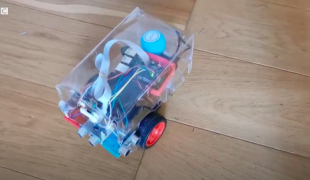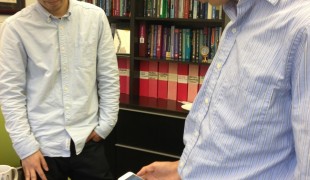- 4361
- 276
- 21
- 15
- 0
- Help Ukraine
About the solution
When Rebecca was caring for both her parents, she realized that even if there were multiple options to structure and assist both caregivers and patients, when looking at their practicability, they weren't user-friendly and for patients with reduced mobility, it was almost impossible to use them. This stemmed from the fact that when looking at medication delivery, activity reporting, or event reminder input into the software, they couldn't perform it due to the lack of fine and gross motor skills.
One of the biggest mobility impact diseases is Parkinson's Disease, which affects more than 10 million people worldwide, and is set to rise by a fifth in 2025.
This is where Amethyst care is revolutionizing the field, as this solution uses voice technology to help care for people living with mobility-related illnesses, keeping them at home and making it easier to monitor and manage. It also allows for preventive measurements to be put in place. It integrates Medication Reminders, evening pop-ups to quench loneliness and improve interactions, all while at the same time assessing the behavioral and cognitive state of the patient and reporting it to the carer via an integrated digital phenotyping process of passive data.
If you want to know more about this solution, you can find them here https://www.f6s.com/amethystcare/about / www.amethystcare.ie and get in touch with the founder and CEO at https://www.linkedin.com/in/rebecca-mcmanus-59344a77/
DISCLAIMER: This story was written by someone who is not the author of the solution, therefore please be advised that, although it was written with the utmost respect for the innovation and the innovator, there can be some incorrect statements. If you find any errors please contact the patient Innovation team via info@patient-innovation.com or at carolina.piedade@patient-innovation.com directly.
这些解决方案不应包括使用药物,化学品或生物制品(包括食品);创伤性设备;冒犯性的,商业或内在危险的内容。该解决方案未经医学验证。请谨慎进行!如果您有任何疑问,请咨询健康专家。
DISCLAIMER: This story was written by someone who is not the author of the solution, therefore please be advised that, although it was written with the utmost respect for the innovation and the innovator, there can be some incorrect statements. If you find any errors please contact the patient Innovation team via info@patient-innovation.com
-
-
350
-
0
-
4289

Collaborator Pierluigi Mantovani creates Evolution Devices - solutions that aim to transform Multiple Sclerosis Management
CAREGIVING
BODY BALANCE: Maintaining body balance
STANDING UP: Standing up from a seated position
WALKING: Walking
Multiple Sclerosis
Assistive Daily Life Device (to help ADL)
Walking Aid (wheelchair/walker/crutches)
App (Including when connected with wearable)
AI algorithm
Body-Worn solutions (Clothing, accessories, shoes, sensors...)
Restoring mobility
Regaining sensory function
Managing pain
Promoting self-management
Preserving Organ Function
Managing Neurological Disorders
Maintaining Balance and Mobility
To improve Treatment/Therapy
Preventing (Vaccination, Protection, Falls, Research/Mapping)
Raise awareness
Caregiving Support
General and Family Medicine
Internal Medicine
Medical Genetics
Neurology
Physical Medicine and Rehabilitation
United States
-
-
-
370
-
0
-
5828

Teenager created a Fall Alert device to help his great-aunt who suffers from dementia
CAREGIVING
demen
Assistive Daily Life Device (to help ADL)
Assistive Technology access
AI algorithm
App (Including when connected with wearable)
Frequent falls
Difficulty coordinating movements
Loss of balance
Managing Neurological Disorders
Building Supportive Community Relationships
Preventing (Vaccination, Protection, Falls, Research/Mapping)
Caregiving Support
Internal Medicine
Neurology
Aging
United Kingdom
-
-
-
959
-
0
-
21052

SafeWander:一种新的医疗解决方案,用于监测离床徘徊的病人
STANDING UP: Standing up from a seated position
SLEEP FUNCTION: Resting
CAREGIVING
Alzheimer's Disease
App (Including when connected with wearable)
Body-Worn solutions (Clothing, accessories, shoes, sensors...)
Assistive Daily Life Device (to help ADL)
AI algorithm
Difficulty coordinating movements
Muscle weakness
Loss of balance
Trouble with fine motor skills (e.g., writing, buttoning clothes)
Memory loss
Sleep disturbances
Sensory disturbances (e.g., hypersensitivity to touch, temperature changes)
Dizziness or lightheadedness
Managing Neurological Disorders
Preventing (Vaccination, Protection, Falls, Research/Mapping)
Caregiving Support
Internal Medicine
Neurology
United States
-
 zh
zh